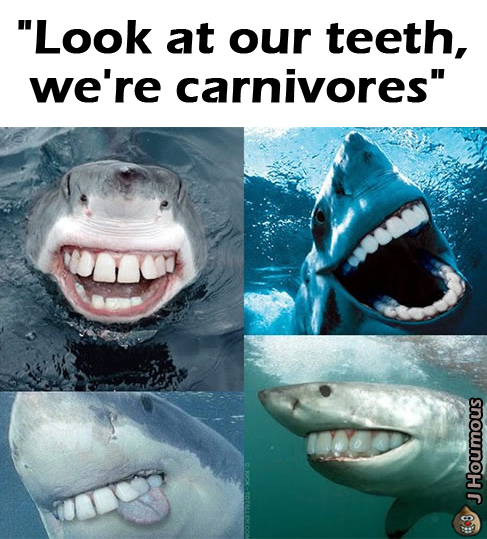this post was submitted on 28 May 2024
325 points (69.8% liked)
memes
10310 readers
1716 users here now
Community rules
1. Be civil
No trolling, bigotry or other insulting / annoying behaviour
2. No politics
This is non-politics community. For political memes please go to !politicalmemes@lemmy.world
3. No recent reposts
Check for reposts when posting a meme, you can only repost after 1 month
4. No bots
No bots without the express approval of the mods or the admins
5. No Spam/Ads
No advertisements or spam. This is an instance rule and the only way to live.
Sister communities
- !tenforward@lemmy.world : Star Trek memes, chat and shitposts
- !lemmyshitpost@lemmy.world : Lemmy Shitposts, anything and everything goes.
- !linuxmemes@lemmy.world : Linux themed memes
- !comicstrips@lemmy.world : for those who love comic stories.
founded 1 year ago
MODERATORS
you are viewing a single comment's thread
view the rest of the comments
view the rest of the comments

Why are you bringing up historical facts? Noones planning to go back in time to make people vegan earlier.
We are talking about now, and right now, could those Scandinavian countries get by with substantially less meat? I'm not sure but quite a few of them are trying limited promotions like a vegan day of the week to promote health.
Meat is not good for us in large amounts, people need to understand that. They seem to with fish, just apply that to the other meat too, just it kills you slower than mercury poisoning would.
I've seen an operation where someone grew a small food forest on 12 inches of manure spread on an abandoned parking lot, in the midwest.
The idea of what land is suitable for crop use is likely based on what's suitable for industrial monoculture, a highly inflexible cookie-cutter system, which is a problem in and of itself.
I agree, and I'm most interested in what innovations we can come up with in as people start to care more and more about their health and diet, and learn that animals and humans deserve respect no matter how far away they are.
I'm not bringing up the state of access to agricultural land as some historical trivia. It's just as true today as ever before.
The point is that plenty of countries/regions cannot be self-sufficient regarding food production without resorting to livestock. There are several reasons to be, at least in part, self-sufficient. From environmental considerations arising from the transport of food from other places, to food security in the case that conflict or crisis strikes the region supplying you with food, a region which you don't control.
Stop acting like this is black and white, and that there's absolutely no reason a country would want the capability of providing for its own people, as if that's a thing of the past.
I never argued each could try should be self-sufficient. Globalism has made it so most people are capable of eating vegan diets, should they choose to. Countries depending on each other to trade food is fine by me, most western countries do this already.
We also dont need to keep growing the human population globally the way we have been, its alright to slow down and figure out how to take care of the people (and animals) that already exist.
You are the one acting like its black and white, saying its either a ban or not at all. Exceptions will need to be made for many reasons were this to be implemented today: for those who can't grow or ship their food in, for those that have to deal with the environmental considerations you mentioned, or those with any number of medical conditions that affect nutrition and diet.
If the self-sufficiency thing is so important to you, can you tell me which countries currently meet that label? Is it most countries? How are the self sufficient countries doing overall?
It seems like you've misunderstood what I'm trying to say. I'm saying that
A) There are legitimate reasons for a country to want to have some degree of self-sufficiency.
B) The environmental impact of producing meat is hugely different depending on how the livestock gets its food, and the environmental impact of transporting goods cannot be neglected.
C) There are countries with terrain suitable for livestock that cannot be used for farming.
Of course: Almost no countries are, or need to be, 100% self-sufficient, because we have trade, but there is a huge difference between 10% and 50% self-sufficiency. If we are to cut out meat entirely, many places would be incapable of maintaining any notable degree of self-sufficiency.
With you third paragraph, it seems like you actually agree with me. I don't know how you got from me saying "there are legitimate reasons to produce meat", to me saying this is a black and white issue. I'm explicitly trying to say that it's not black and white, both because of self-sufficiency arguments, and because of the environmental cost of transportation. Thus, we need a nuanced approach. This means that we should minimise (or eliminate) the use of farmland for livestock production, without condemning livestock production as a whole, because there are legitimate reasons to have livestock, as argued above.
I think the only disagreement I have is that I think we do need to condemn it as a whole, and set the ultimate goal of abolishing the practice. We can still compromise on the way there. I think this is a problem we could solve if we could agree on the goal, although its most important we are heading in the right direction regardless of the end goal.